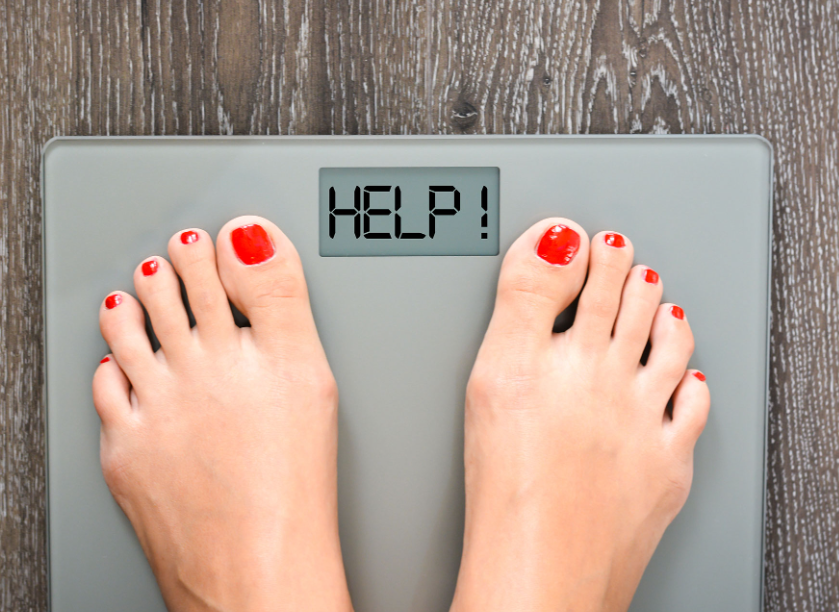
Breaking Through the Myths – 5 Inconvenient Truths about Losing Weight
Share
Our quick-fix society often places a large emphasis on peoples’ body weight, associating being overweight with laziness or a lack of self-discipline. This misguided viewpoint is not simply a matter of one’s willpower but instead, a complex interplay of genetic, biological, and environmental factors. This misconception can often lead to feelings of shame and guilt, hindering people’s journey to take greater ownership of their health outcomes. Here are a few truths to keep in mind when trying to lose or manage your weight.
All Calories May Be Equal, But Their Source Isn’t
Calories are simply a measure of energy. This means that a calorie from a donut is the same as a calorie from a carrot. However, different calorie sources have varying effects on your weight and health. While many of us are in pursuit of losing body fat, it should be done in a nutritious, sustainable, and healthy ways. Instead of consuming excessive amounts of processed, low-calorie foods (including “low fat” foods and “diet” beverages), we should focus on nutrient-dense, unprocessed foods that help the multiple systems within our body to run smoothly. This approach will not only help you lose weight but will also vastly improve your overall health and prevent decline.
Losing Weight is not a Linear Process
Weight loss is rarely, if ever, a straightforward journey. Fluctuations in weight are normal, and factors like water retention, stress and inconsistent sleep cycles can influence it. The focus should be on the overall downward trend rather than fixating on daily or weekly fluctuations. More importantly than a number on your bathroom scale, you should focus on how you feel. Remember, if you’re doing strength training, you will lose weight and gain muscle (because you are pairing healthy eating with exercise), so the number on the scale will fluctuate a lot! This is because a pound of muscle is denser and has less volume than a pound of fat. Are you feeling more energetic than usual or losing inches around your waist or hips? These clues should provide more insight to you than a number on a scale.
Bodyweight is Not Really About Willpower
The worldwide obesity epidemic is a complex disorder that’s influenced by genetic, biological, and environmental factors. Anyone who claims it’s not, is oversimplifying the problem. It is not solely a matter of willpower, and conditions like hypothyroidism, certain medications, and mental conditions like depression can increase the risk of weight gain. Losing weight is possible but may be more challenging for some individuals for multiple reasons. The key is to keep striving to live a healthier lifestyle and increase your fitness the best way you know how. If you need help, this is one reason why we offer PD+ memberships and other Preventing Decline Products & services.
Carbohydrates Themselves Are Not the Culprit
In the 1980s and 90's, fat was the common enemy, now it has become carbs. The truth is, we need all macronutrients (proteins, fats and carbs) to be healthy. In fact, your brain needs carbohydrates to thrive. Low-carb diets can be effective for weight loss, but it is important to differentiate between whole-food complex carbohydrates and simply refined carbs that spike your insulin. Wholefood, single-ingredient carb-based foods have been a part of the human diet for thousands of years. The high consumption of simple sugars and highly processed, pre-packaged snacks, meals, and desserts are just not going to cut it to help you feel better. In fact, it’s usually the reason we usually feel like trash afterwards when consuming them.
Weight Loss Does Not Guarantee Happiness
Contrary to popular belief, weight loss does not always lead to happiness. Relationships, self-confidence, and mental health can be significantly impacted during the weight-loss journey. What's more, many people during the weight loss process lose themselves and become more self-conscious than they were before. It's easy to become hyper-fixated on your body and weight during the journey and place too much of your personal value on whether you lose the weight you want and manage to keep it off long term. It is important to prioritize overall well-being rather than solely focusing on weight loss. Learn to be happy with yourself first, then approach weight loss as an act of self-love and lifestyle improvement rather than out of self-loathing.
Things to think about as you embark on your health journey:
Set Realistic Goals: Instead of setting unrealistic goals based solely on weight, focus on overall well-being and lifestyle changes that are measurable.
Emphasize Healthy Habits: Shift the focus from weight loss alone to adopting healthy habits such as balanced nutrition, regular physical activity, and adequate sleep. This is the primary mission of Preventing Decline.
Practice Self-Compassion: Be kind to yourself throughout the process, embracing both successes and setbacks as part of the journey. The strength is in the struggle.
Surround Yourself with Support: Seek support from friends, family, or support groups for encouragement and motivation. Becoming a free member of the Preventing Decline community is a great place to start!
